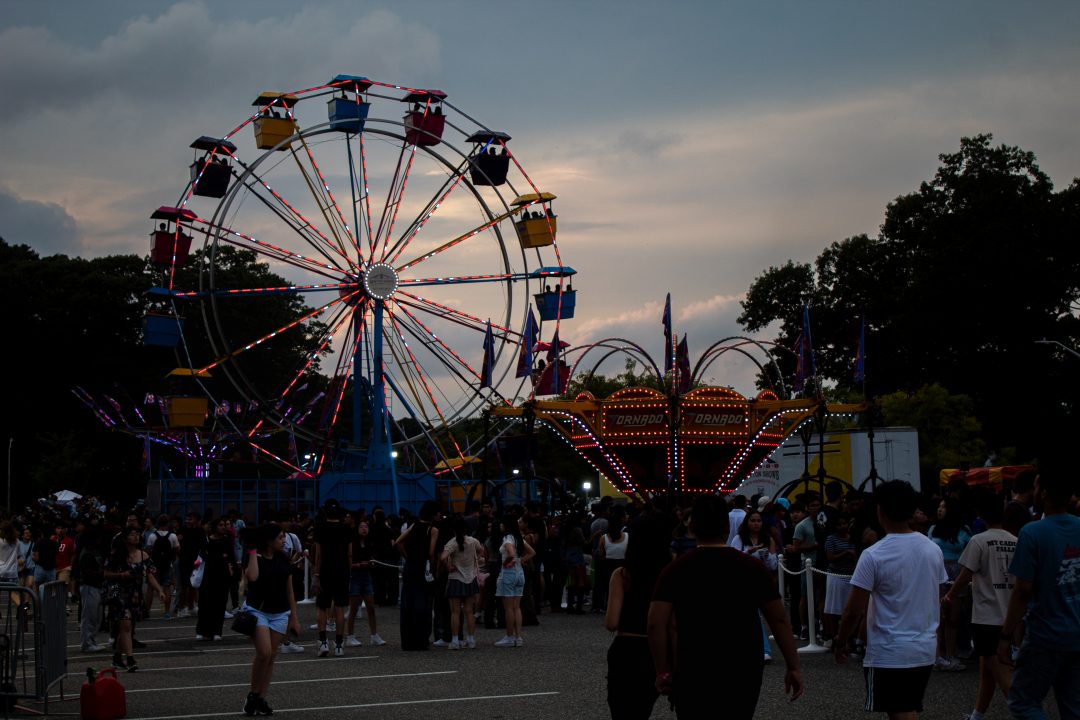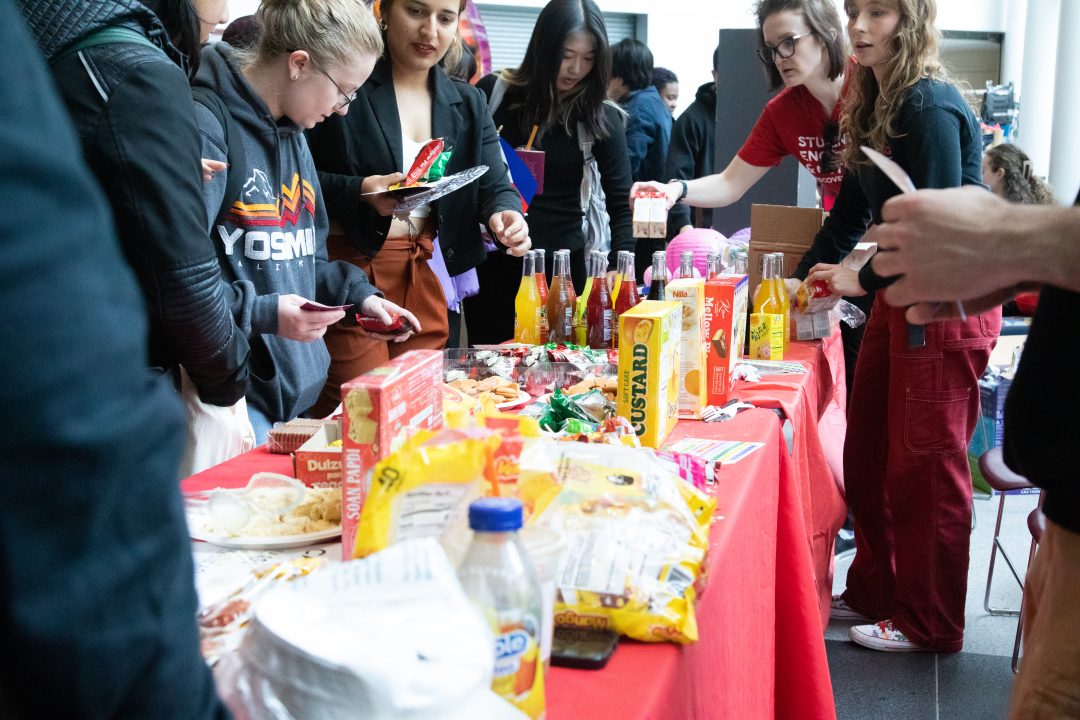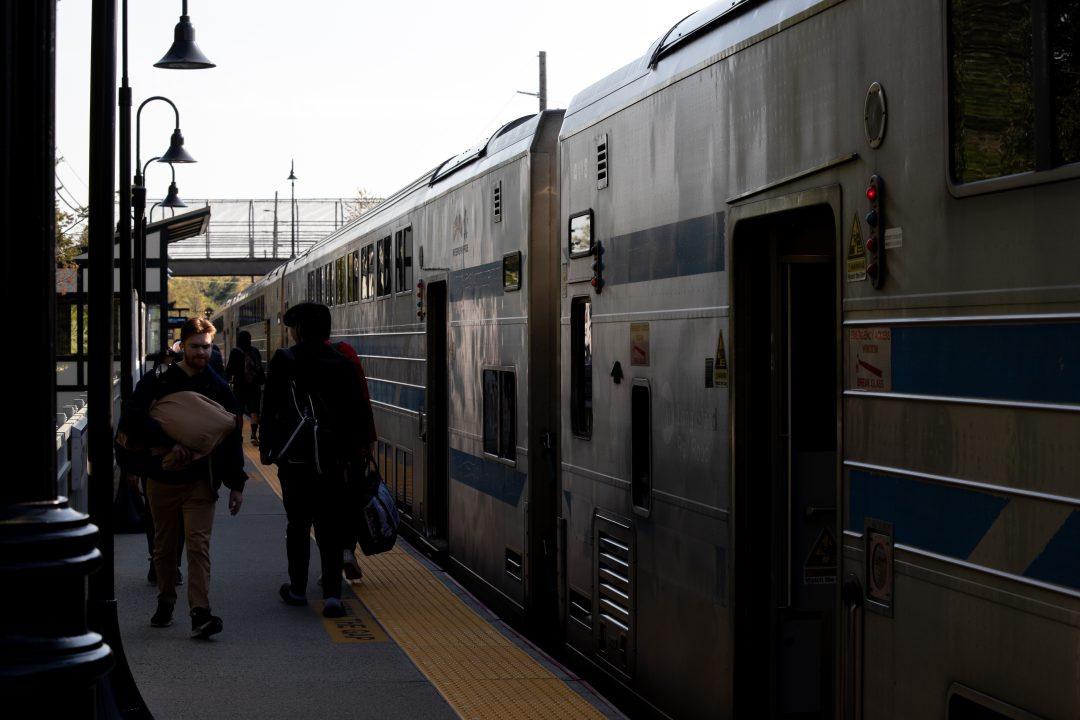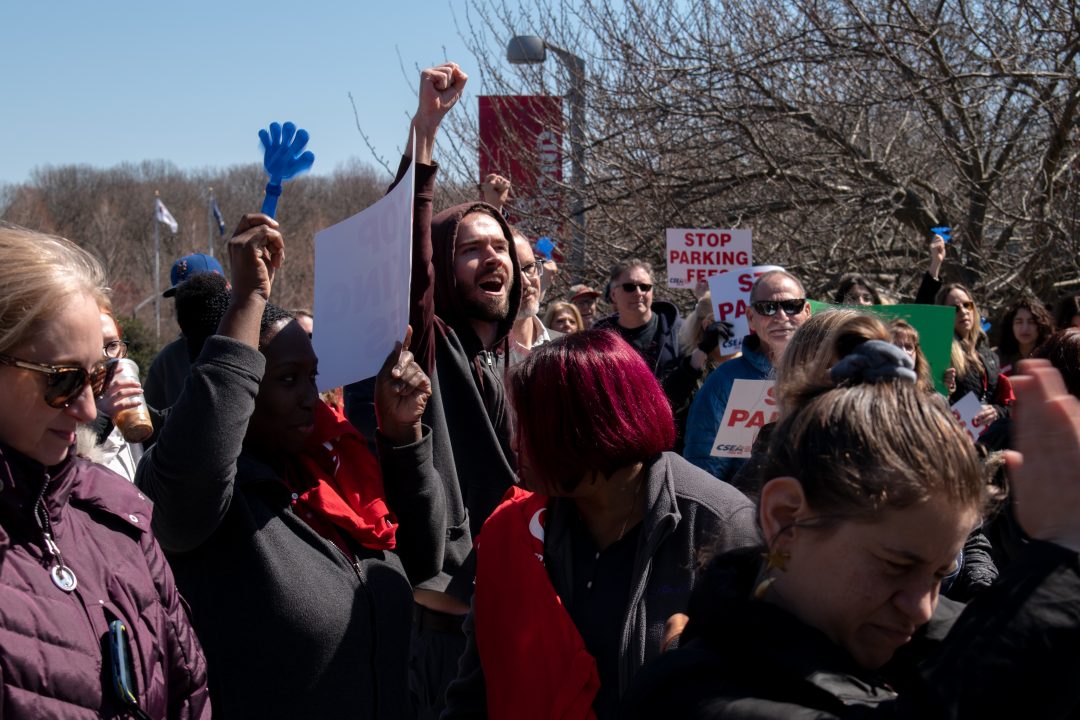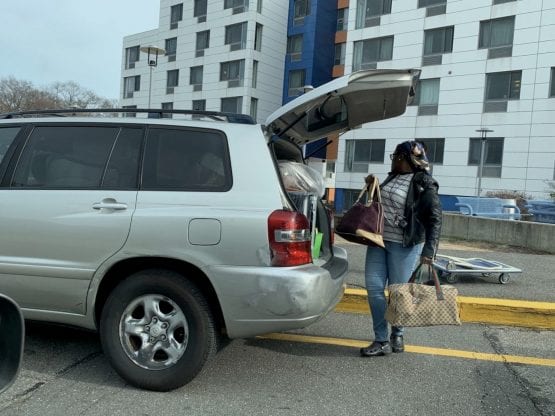
Update 03/20/20, 2:18 p.m.: This article was updated with the most recent COVID-19 statistics from New York state.
Stony Brook University students received the email on March 17: Residents within driving distance have 48 hours to vacate their dorms, and all other residents have only until March 20.
Universities across the state have been evacuating students from on-campus housing. Students from SUNY Fredonia were told last Wednesday that residence halls would be closed beginning March 19.
Stony Brook informed students that moving out was a “personal choice” until Tuesday afternoon when they suddenly announced that all on-campus housing was closing and students were expected to leave immediately.
“We’re being told one thing after another,” Lindsey Dodenhoff, a freshman multidisciplinary studies major, said. “It’s definitely frustrating.”
Dodenhoff is on the university’s track team with freshman political science major, Ermiyas Harper. The two recounted their confusion with the school’s administration at the Student Activities Center alongside their friends shortly after receiving the email.
“I’m from Brooklyn, and the city is a hot-bed right now,” Harper said. “If I get sick I’m not too worried about it, but I don’t want to bring anything back to my family.”
Stony Brook emailed students on March 11 suggesting that students leave housing for spring break. They maintained in the email that housing would remain open to those who needed accommodations. Only a few days later, the university announced that all students, except for a few exceptions, must leave.
Students who left campus for break but planned on returning for distance learning — which starts March 30 — must now rush to return to school before the Friday deadline and collect their belongings.
“I came back home [to California] for spring break,” Nicole Margolis, a sophomore biochemistry major, said. Her county in California is currently under a shelter-in-place order, which requires residents to self-isolate indoors until given authority to evacuate. “I’ve been worried and upset [this whole week]. I have an immunocompromised family, and now I have to worry about [going back for] my things in my dorm.”
A Google Doc is attached to the email sent by Campus Residences, listing the requirements for check out. Students are expected to remove all personal items — their university account will be billed until the room is vacant. Items left after students file vacancy are to be discarded.
For students who left campus but still need to move their things — the document states:
“If you are home and unable to return to campus to complete the move out process, your personal items will be inventoried, boxed and removed from your space by University staff and stored at your expense. Billing will continue until this process is completed and your room key returned by mail. Please note that this may take several weeks to occur and that you will continue to be billed for your room until the space is vacant of your personal belongings.”
Students, such as senior linguistics major Zachary Baumgartner, are frustrated with the university’s administration for its lack of transparency during the COVID-19 outbreak.
“I’m extremely angry,” Baumgartner, a Deerpark resident, said. “They’ve either kept us in the dark or sprung stuff on us [like this]. So many international students are getting screwed. I’m a senior as well — and I have to start saying goodbye to so many people — and I only have a few days to do that.”
While the school’s administration has been criticized for poor communication, the Stony Brook University Hospital has been actively screening patients in their emergency department and is already quarantining at least three patients with COVID-19. A drive-up testing site to screen for COVID-19 was set up in the South P Lot, one of the university’s largest parking lots for commuters, on Wednesday. The university’s access to medical resources, however, offers some students a sense of security.
“I felt like campus was a safe space to be, but now they’re throwing us out and leaving us hanging,” Stefanos Lemesios, a senior economics and applied mathematics & statistics student, said.
His home country of Cyprus, an island south of Turkey, has already banned travel from 28 countries, and barred entry into the island unless travelers provide medical certification they test negative for the virus. Lemesios is uncertain where he will be staying after the March 20 deadline.
“I felt okay staying here for another two months,” he said. “In a way, living strictly on campus is quarantining yourself from the outside world.”
As of March 19, New York State has 4,152 confirmed cases.












